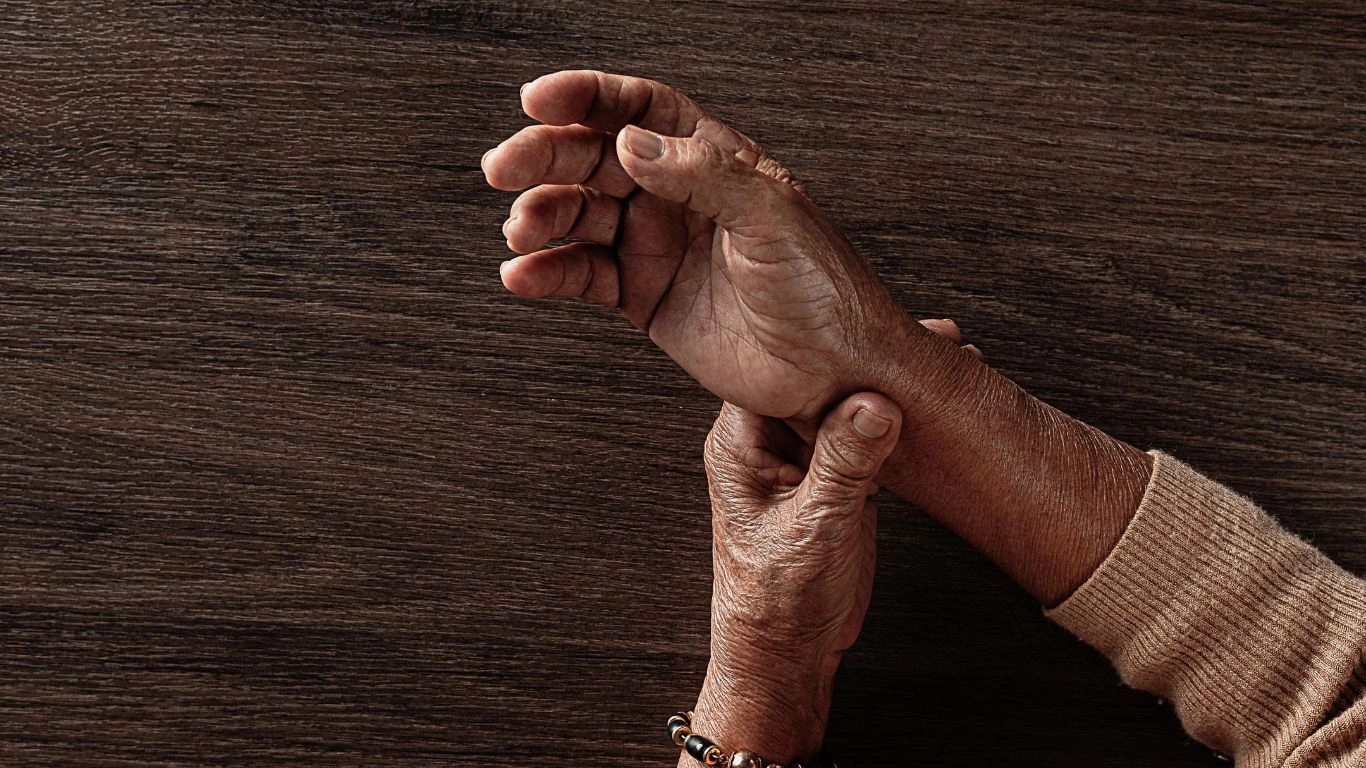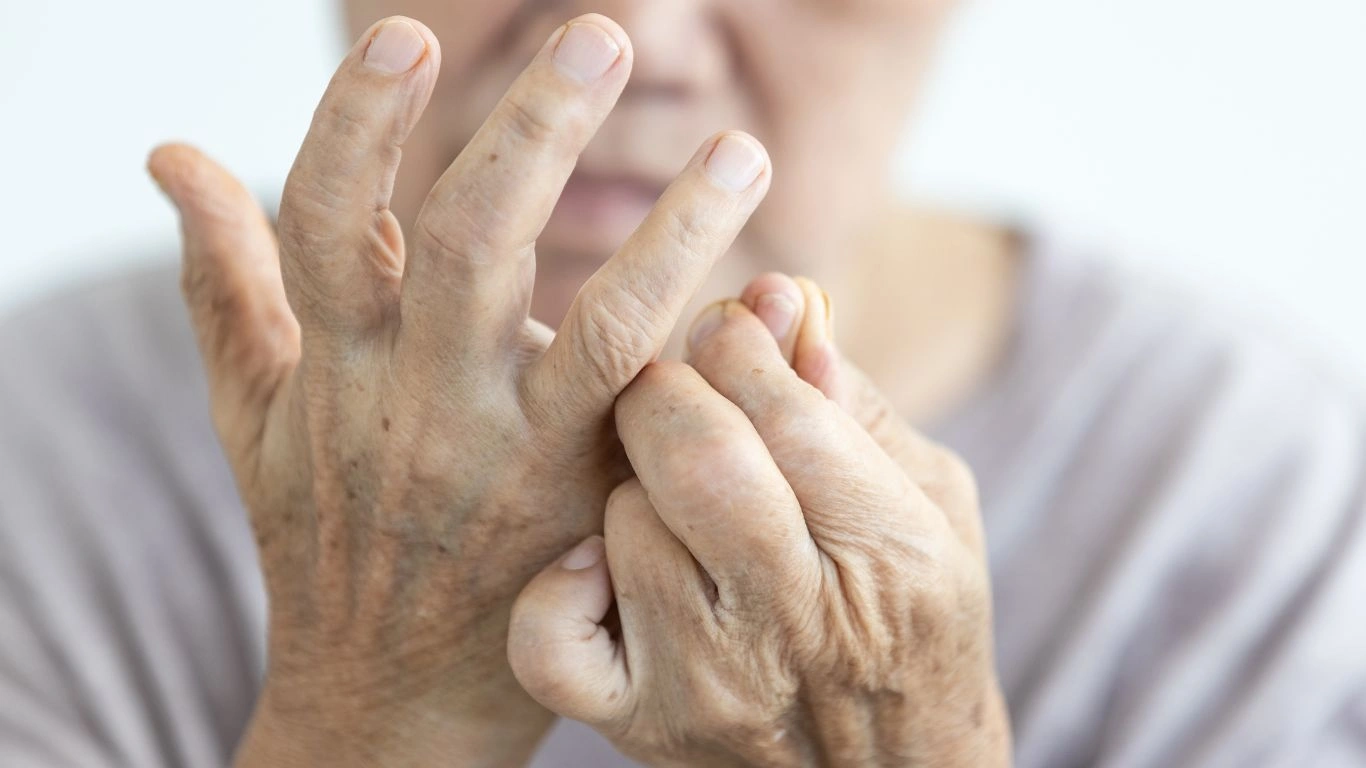How to Cope with Rheumatoid Arthritis Pain Mentally: Effective Tips
Living with rheumatoid arthritis (RA) can feel like an ongoing battle, especially when it comes to managing pain. As someone who works closely with patients in the realm of rheumatology, I’ve seen firsthand how RA pain can affect both the body and the mind. It’s not just about managing physical discomfort – it’s also about understanding and addressing the mental toll that comes with chronic pain. So, if you’re wondering how to cope with rheumatoid arthritis pain mentally, you’re not alone. Many people with RA struggle not only with the pain itself but with the emotional and psychological challenges that come with it.
Understanding the Mental Impact of RA Pain
When you’re dealing with rheumatoid arthritis pain, it’s easy for your mind to get stuck in a negative loop. The constant aches and stiffness can leave you feeling defeated, and over time, this can contribute to mental health issues like anxiety, depression, and even feelings of helplessness. If you’re struggling with these emotions, it’s important to remember that you’re not just facing physical pain – there’s an emotional side to chronic pain that often gets overlooked.
In my experience as a Rheumatology Nurse Practitioner, many patients underestimate how much RA pain can impact their mental well-being. The physical limitations, like not being able to grip something or walk without discomfort, can often lead to frustration, sadness, and stress. When it’s tough to keep up with daily activities, the mental strain can quickly become overwhelming. I’ve witnessed how this emotional burden adds another layer to the already complex experience of living with RA. And it’s crucial to address these emotional factors alongside the physical pain for a well-rounded approach to managing RA.

Mind-Body Connection: How RA Affects Your Mental Health
One of the biggest challenges for anyone living with rheumatoid arthritis is understanding the connection between physical pain and mental health. When the body is in pain, it can trigger a stress response in the brain. This is a normal reaction, but with chronic conditions like RA, the constant cycle of pain and stress can wear down mental resilience over time. And when you’re in pain every day, your body can go into a state of “fight or flight,” making it harder to relax or think clearly.
Furthermore, the chronic nature of RA means that the pain isn’t going to go away after a short period of time. This can lead to what we call “pain catastrophizing” – where the pain seems so overwhelming that it’s hard to focus on anything else. It’s like living in a constant state of alertness. I’ve seen how this mindset can not only affect the patient’s daily mood but also create a cycle where the fear of future pain actually worsens the present discomfort. The emotional stress adds fuel to the fire, making it even harder to cope.
Practical Tips for Coping with Rheumatoid Arthritis Pain Mentally
While it’s impossible to eliminate pain entirely, there are ways to manage the mental impact of RA. Over the years, I’ve had the privilege of working with many patients who’ve developed coping strategies to help them navigate their pain. These approaches don’t just rely on medication or physical therapies – they also tap into mental health practices that are equally important. Here are some practical tips to help you cope with rheumatoid arthritis pain mentally:
1. Practice Mindfulness and Relaxation Techniques
Mindfulness and relaxation exercises can be extremely effective in helping to manage both the physical and emotional aspects of RA. Techniques like deep breathing, meditation, and yoga can help calm the mind, reduce stress, and even decrease pain perception. I’ve seen patients who dedicate just 10-15 minutes a day to mindfulness exercises feel a significant improvement in their stress levels and overall pain management.
- Deep Breathing: Slow, deliberate breathing helps activate the body’s relaxation response. It can lower your heart rate, reduce muscle tension, and shift your focus away from pain.
- Mindfulness Meditation: By practicing mindfulness, you focus on being present and non-judgmental about your pain, rather than letting it take over your thoughts.
- Yoga or Tai Chi: These gentle exercises not only help with flexibility and movement but also calm the mind through rhythmic, mindful movements.

2. Build a Support Network
No one should face RA alone. Having a solid support system can make a world of difference when coping with the mental and emotional challenges of RA. It can be comforting to talk to others who understand what you’re going through. Family members, friends, or even support groups specifically for people with RA can provide the encouragement and understanding that’s needed to stay mentally strong.
In my practice, I’ve found that those who actively engage with others – whether through online communities or in-person groups – tend to feel less isolated. They share experiences, learn new coping strategies, and, most importantly, realize that they’re not alone in this journey. And remember, sometimes it’s okay to lean on a professional counselor or therapist who can help you work through the emotional aspects of RA.
3. Keep a Positive Outlook, But Don’t Ignore Your Feelings
It’s important to maintain a positive mindset when dealing with rheumatoid arthritis pain. However, this doesn’t mean pretending the pain isn’t there or trying to be happy all the time. Acknowledging the reality of your situation is key to mental resilience. What I encourage my patients to do is balance a positive outlook with realistic acceptance of their condition. It’s okay to have tough days. What matters is how you respond to those days. Are you letting the negative emotions dictate your actions, or are you allowing yourself to feel them, process them, and then move forward?

By accepting your pain, without letting it take over your entire life, you create space for personal growth. The key is finding the right balance between staying optimistic and acknowledging that some days will be harder than others. It’s about learning to ride the waves of pain without letting them pull you under.
Understanding Pain Triggers and How to Manage Them
One of the most important aspects of coping with rheumatoid arthritis pain mentally is understanding what triggers your pain. In my experience, many patients find that specific activities, weather changes, or even emotional stressors can significantly increase their pain levels. By identifying these triggers, you can take steps to manage them more effectively, and this can have a huge impact on your mental health as well.
For example, I’ve had patients tell me that they experience flare-ups of RA pain when the weather turns cold or damp. Others may notice that stress at work or home leads to an increase in joint pain. Recognizing these patterns is empowering because it means you can take proactive steps to reduce your exposure to these triggers. And even if you can’t completely eliminate them, knowing what causes your pain allows you to mentally prepare and manage your expectations.

4. Adjust Your Daily Activities and Pace Yourself
Another important mental health tip for coping with rheumatoid arthritis pain is learning how to adjust your daily activities. RA isn’t just about managing pain – it’s about managing energy and activity levels too. I’ve had many patients share that they overexert themselves, thinking they can push through the pain, only to find themselves physically and mentally exhausted later on. Over time, this can lead to burnout, frustration, and even depression.
The key is to pace yourself. You don’t have to do everything in one go. By breaking up tasks into smaller steps and taking regular breaks, you can prevent pushing yourself too hard and reduce mental stress. One trick I often recommend is using a “spoon theory” approach – where you mentally allocate a certain number of “spoons” (energy) for the day, and you’re mindful of how many tasks each activity takes. It helps create a mental structure for dealing with both the physical and mental aspects of RA.
It’s also okay to delegate or ask for help. This is a lesson I’ve learned from both patients and my own experiences. You don’t have to do everything yourself, and asking for help doesn’t mean you’re weak. It’s about prioritizing your well-being, which will ultimately help you manage RA pain better.
5. Maintain a Healthy, RA-Friendly Lifestyle
Living with rheumatoid arthritis doesn’t mean you have to abandon a healthy lifestyle – in fact, maintaining good habits is crucial for both physical and mental health. Exercise, when done properly, can be incredibly beneficial for people with RA. Regular, low-impact activities such as swimming, walking, or cycling can help reduce stiffness, improve joint mobility, and boost your mood. And when you feel better physically, it has a positive impact on your mental outlook as well.
I’ve seen firsthand how patients who maintain a steady exercise routine experience less pain and better mental clarity. Movement releases endorphins, which are natural mood boosters. The sense of accomplishment that comes with completing a workout or simply moving your body also fosters a more positive attitude toward pain management.
Of course, it’s important to listen to your body and not overdo it. Start slow and gradually build up your activity level, making sure to focus on movements that are gentle on the joints. If you’re unsure where to start, working with a physical therapist can be incredibly helpful in developing an exercise plan that’s right for you.

6. Explore Complementary Therapies
Many people living with rheumatoid arthritis find relief not just through traditional medical treatments but also by incorporating complementary therapies into their pain management routines. These therapies can be a great way to complement your regular treatment plan, and many of them are focused on reducing stress and enhancing mental well-being.
For example, acupuncture has become an increasingly popular option for RA patients, offering potential pain relief through targeted stimulation of specific points on the body. In my experience, several patients have reported feeling more relaxed and less tense after acupuncture treatments. Similarly, massage therapy can help alleviate muscle tension and improve circulation, which in turn reduces joint discomfort. The mental benefits of these therapies are equally important, as they can create a calm and restorative experience that helps you recharge.
Herbal supplements and essential oils are also commonly used by people with RA to help reduce inflammation and promote relaxation. However, always check with your doctor before starting any new treatments, as they may interact with medications you’re already taking. It’s important to approach complementary therapies as part of a holistic approach, ensuring that you’re addressing both the mental and physical aspects of RA.
Emotional Resilience: Building Your Mental Strength
When it comes to managing rheumatoid arthritis pain, emotional resilience is key. Developing the mental strength to face each day, despite the challenges of RA, can make a significant difference in your overall quality of life. As someone who works closely with patients, I’ve seen many individuals transform their outlook by focusing on their emotional resilience rather than the pain itself. It’s not about ignoring the pain – it’s about building up your ability to handle it when it flares up.
One effective way to strengthen emotional resilience is by setting small, achievable goals. These goals don’t have to be grand; they can be as simple as managing your energy levels throughout the day or completing a short walk despite pain. By achieving these smaller goals, you build confidence and remind yourself that you’re capable of handling RA and its challenges.
Another technique is developing a “growth mindset.” This means viewing obstacles as opportunities to learn rather than as setbacks. If you have a particularly tough day, instead of focusing on the negative, ask yourself, “What can I learn from this experience?” This shift in perspective can help you approach RA in a more constructive and less emotionally draining way.

Resilience isn’t something that happens overnight – it’s a skill that takes time to develop. But with patience and consistent effort, you’ll find yourself growing stronger mentally and emotionally, no matter how challenging the pain may become.
Stay Connected: The Power of Social Support in Managing RA Pain
Living with rheumatoid arthritis (RA) can sometimes make you feel isolated, especially when the pain feels overwhelming. But here’s a crucial truth: social support can play a huge role in coping with the mental challenges of RA pain. I can’t tell you how many times I’ve seen patients feel less burdened simply by sharing their struggles with others. Whether it’s family, friends, or a support group, staying connected with people who understand can lift your spirits and help you manage pain more effectively.
In my experience as a Rheumatology Nurse Practitioner, I’ve seen how patients who lean on their support networks have better emotional outcomes. It’s not just about talking about the pain – it’s about finding empathy and comfort in the shared experience of living with a chronic condition. When you talk to someone who gets it, it’s like a mental weight is lifted off your shoulders. They might not have the magic answer to make your pain disappear, but their support can help you feel less alone in your journey.
If you don’t have a close friend or family member who understands, don’t hesitate to look for support groups specifically for RA. Many people find online forums or local in-person groups to be incredibly helpful in navigating the ups and downs of RA. Just knowing there are others out there going through the same thing can be a huge relief.

7. Managing Stress: How to Keep It Under Control
Stress is a well-known trigger for flare-ups in rheumatoid arthritis, both physically and mentally. When you’re under stress, your body releases hormones like cortisol, which can increase inflammation and exacerbate pain. And let’s be honest, managing stress when you’re in pain can feel like trying to climb a mountain. But here’s the thing: reducing stress can make a significant difference in how you experience RA pain.
In my practice, I’ve worked with a number of patients who have successfully reduced their pain levels by addressing their stress levels. Whether it’s through practicing relaxation techniques, engaging in hobbies, or simply setting boundaries with work and personal life, learning how to manage stress is one of the most effective tools in your RA toolkit. It’s not always easy, but it’s possible, and it can have a profound impact on both your physical and mental well-being.
One technique I recommend is progressive muscle relaxation (PMR). This involves tensing and relaxing muscle groups in your body, which helps reduce physical tension and stress. It’s a practice that can be done at home, in your office, or even while waiting for an appointment. Small changes like taking time during the day to breathe deeply or stretch can really add up in reducing overall stress levels.
8. Medication: Don’t Forget to Manage Your Treatment Plan
While mental and emotional strategies are crucial, managing RA pain physically is also part of the equation. Your treatment plan, which likely includes disease-modifying antirheumatic drugs (DMARDs), biologics, or other medications, is designed to control inflammation and reduce pain. I always tell my patients that while these medications are important, managing RA mentally requires being proactive about your treatment plan.
It’s important to work with your rheumatologist and healthcare team to ensure that your medication regimen is tailored to your specific needs. Sometimes, RA patients are hesitant to change their medication plan due to concerns about side effects or fear of new treatments. But finding the right treatment often requires a bit of trial and error, and in my experience, patients who work closely with their doctors are better equipped to manage the physical and emotional aspects of RA.
Being informed about your treatment options can help ease the anxiety that comes with the unknown. I always encourage my patients to ask questions and voice any concerns. The more you understand your treatment plan, the more control you feel over your condition, which can, in turn, help you cope mentally. It’s not just about taking pills; it’s about understanding how each part of your treatment contributes to the bigger picture of your health.

Focus on Self-Care: It’s Okay to Put Yourself First
Self-care is another important aspect of managing rheumatoid arthritis pain mentally. I often tell my patients that it’s okay to put themselves first, even when they feel guilty about it. You can’t take care of others or live your best life if you’re not taking care of yourself first. Self-care is not a luxury; it’s a necessity when dealing with chronic pain. Whether it’s indulging in a warm bath, reading a good book, or taking a nap, self-care allows your body and mind to recharge.
It might sound like a simple concept, but in reality, it’s often the first thing we neglect when life gets busy. Especially for people with RA, who may be dealing with family responsibilities, work stress, or other daily challenges, finding time for yourself can be difficult. But trust me, even small moments of self-care make a huge difference in your overall mental health. Prioritizing your well-being is not selfish – it’s vital for long-term health, both physically and mentally.
If you’re unsure where to start, consider making self-care a daily habit. Try incorporating something small each day that’s just for you. It might be as simple as enjoying a cup of tea without distractions, taking a five-minute break to do nothing, or doing a hobby you love. Over time, these moments of self-care can help you feel more grounded and equipped to handle RA pain more effectively.
References
For more information about managing rheumatoid arthritis, visit trusted resources such as Google and other health-related sites.
Note: The information provided here is not a substitute for professional medical advice. Please consult with your healthcare provider for guidance tailored to your specific situation.

Tarra Nugroho is a dedicated Nurse Practitioner with a strong foundation in family and preventive care. She brings both compassion and clinical expertise to her practice, focusing on patient-centered care and health education. As a contributor to Healthusias.com, Tarra translates medical knowledge into clear, empowering articles on topics like women’s health, chronic disease management, and lifestyle medicine. Her mission is simple: help people feel seen, heard, and informed—both in the clinic and through the content she creates. When she’s not caring for patients, Tarra enjoys weekend hikes, plant-based cooking, and curling up with a good health podcast.







